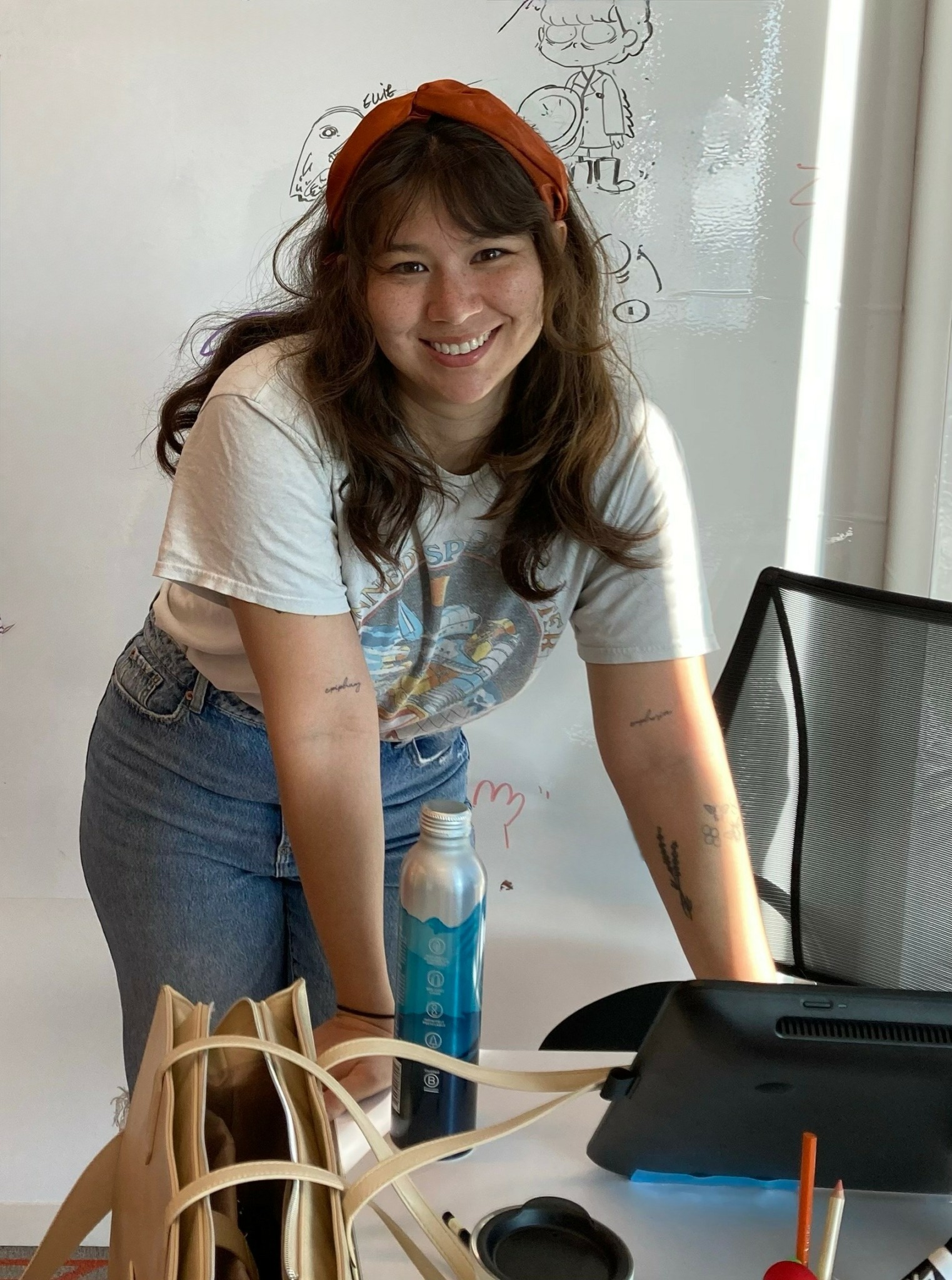We caught up with the brilliant and insightful Bosook Coburn a few weeks ago and have shared our conversation below.
Bosook, appreciate you joining us today. How did you learn to do what you do? Knowing what you know now, what could you have done to speed up your learning process? What skills do you think were most essential? What obstacles stood in the way of learning more?
I think the best way to learn storyboarding, like most things, is just by doing. You can sit and theorize about all the ways to approach a project or all the ways you want to execute a scene, but really you won’t know if it works unless you try to do it, and then try again if the first idea doesn’t work. You’ll probably have to do this many times, but the more you do, the more you’ll become familiar, and the easier things will get. I was very fortunate to be around lots of other people interested in story and boarding when I was coming up in college, and I really valued getting their opinions on my work. It really broadened the way I could think about a scene and added variety to the ways I could approach a problem. And then, of course, you have to do it again and again.
I think if I really wanted to speed up my learning, especially at the beginning, I would have really focused on draftsmanship first. There is nothing more frustrating then having a scene you want to draw out that works great in your head, but not having the skills to put it to the page. Working on the basics of draftsmanship, perspective, and speed or shorthand’s are invaluable when it comes to executing an idea in storyboards. I would also recommend studying, not just watching, films and movies that inspire you. Try and figure out why a scene works, how cuts impact your viewing experience, or how compositions make you feel.
Much of the time, I’m my own worst enemy when it comes to learning a new skill or expanding on the story skills I have. Either by thinking I don’t really have the time I need to learn the skill, or by feeling like there is just so much to learn, it’s hard to know how to begin your approach. In those times, I go back to the beginning. Just start by doing it, and go from there.

Awesome – so before we get into the rest of our questions, can you briefly introduce yourself to our readers.
I was always interested in fine art growing up, but also had a deep devotion and obsession with movies, When I discovered that animations as actually a field I could work in (and wasn’t just limited to the extras on DVDs in my basement), I didn’t look back.
The art of story boarding for animation is very similar to live action in a sense. You’re expressing ideas for shots and for the cinematography of the project you’re working on. But also the backgrounds, character acting, and the tone. Since you’re drawing everything from scratch, there is a lot of emphasis put onto the character acting. You’re basically taking the script or outline of the episode/ project and bringing it to life as much as possible. Directing is very similar, except the scope is expanded to the whole episode/ project and a management aspect is added, where you also have to help guide and support your team of storyboard artists. Much of the process is a puzzle that you’re trying to find the best, funniest, most touching solutions for.
This entires craft really combines my love for cinematography as well as character acting. You really have to combine all of those into a scene to make it effective in animation, and that’s the unique thing I love about it. Most of the projects I’ve worked on have a deep appreciation for both, which I’m extremely grateful for.
For you, what’s the most rewarding aspect of being a creative?
There are so many things I find rewarding about the work. Every time I’m stuck with how to approach a problem or have boarded myself into a corner and get that “ah-ha!” moment once I’ve solved it. Each time I come across a script and have an immediate way of visualizing it and knowing just how to approach a scene. Also being reminded of the work and the appreciation it’s received years later upon its release to the public. When the work shocks and thrills audiences or when it’s loved by them, it always gives me that extra boost. “Ah, that’s why it’s important to keep doing this.”
What’s a lesson you had to unlearn and what’s the backstory?
Ironically one of the things I learned in storyboarding is something I had to relearn in Directing. You’re hired for your vision and what you can bring to the table. The people you may be presenting to could change, and how you have to present your work, but I had to learn again and again that you have your own unique take and that’s what they are looking for. Don’t shy away from it.
Contact Info:
- Website: https://bosookcoburn.com
Image Credits
Bosook Coburn


